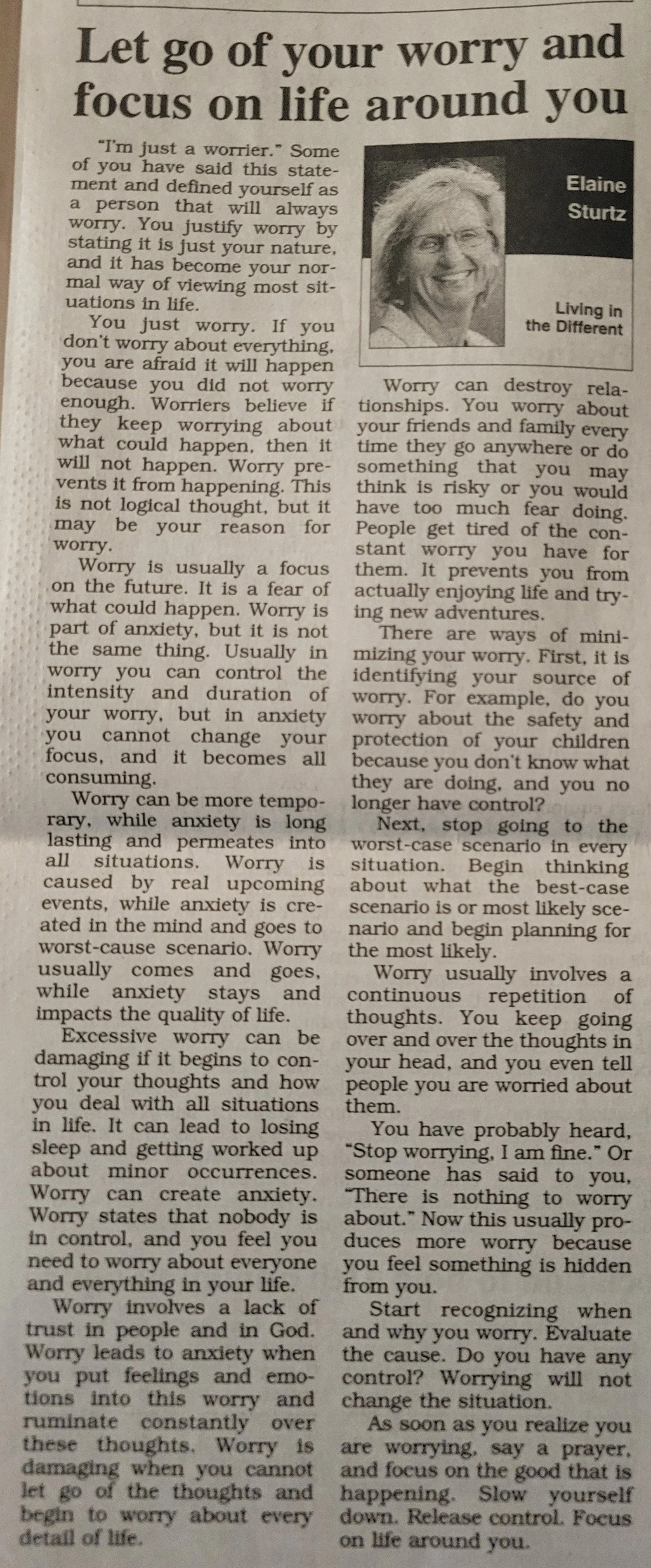Worry
/“I’m just a worrier.” Some of you have said this statement and defined yourself as a person that will always worry. You justify worry by stating it is just your nature, and it has become your normal way of viewing most situations in life. You just worry. If you don’t worry about everything, you are afraid it will happen because you did not worry enough. Worriers believe if they keep worrying about what could happen, then it will not happen. Worry prevents it from happening. This is not logical thought, but it may be your reason for worry.
Worry is usually a focus on the future. It is a fear of what could happen. Worry is part of anxiety, but it is not the same thing. Usually in worry you can control the intensity and duration of your worry, but in anxiety you cannot change your focus, and it becomes all consuming. Worry can be more temporary, while anxiety is long lasting and permeates into all situations. Worry is caused by real upcoming events, while anxiety is created in the mind and goes to worst-cause scenario. Worry usually comes and goes, while anxiety stays and impacts the quality of life.
Excessive worry can be damaging if it begins to control your thoughts and how you deal with all situations in life. It can lead to losing sleep and getting worked up about minor occurrences. Worry can create anxiety. Worry states that nobody is in control, and you feel you need to worry about everyone and everything in your life. Worry involves a lack of trust in people and in God. Worry leads to anxiety when you put feelings and emotions into this worry and ruminate constantly over these thoughts. Worry is damaging when you cannot let go of the thoughts and begin to worry about every detail of life.
Worry can destroy relationships. You worry about your friends and family every time they go anywhere or do something that you may think is risky or you would have too much fear doing. People get tired of the constant worry you have for them. It prevents you from actually enjoying life and trying new adventures.
There are ways of minimizing your worry. First, it is identifying your source of worry. For example, do you worry about the safety and protection of your children because you don’t know what they are doing, and you no longer have control? Next, stop going to the worst-case scenario in every situation. Begin thinking about what the best-case scenario is or most likely scenario and begin planning for the most likely.
Worry usually involves a continuous repetition of thoughts. You keep going over and over the thoughts in your head, and you even tell people you are worried about them. You have probably heard, “Stop worrying, I am fine.” Or someone has said to you, “There is nothing to worry about.” Now this usually produces more worry because you feel something is hidden from you.
Start recognizing when and why you worry. Evaluate the cause. Do you have any control? Worrying will not change the situation. As soon as you realize you are worrying, say a prayer, and focus on the good that is happening. Slow yourself down. Release control. Focus on life around you.
Elaine J. Sturtz
Living In The Different


